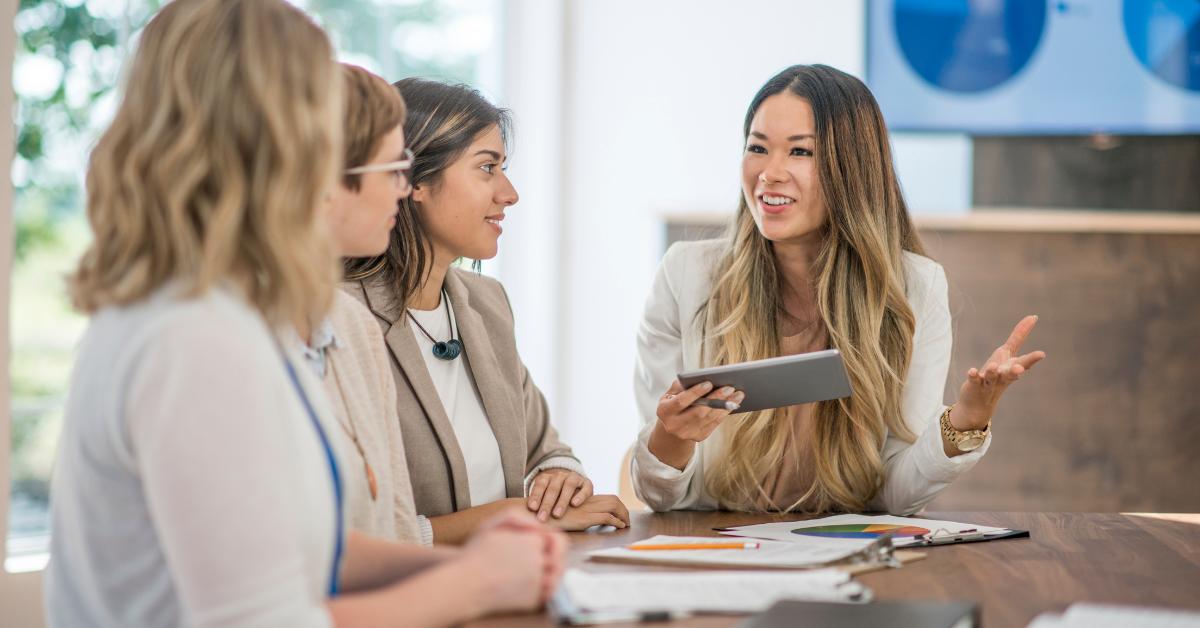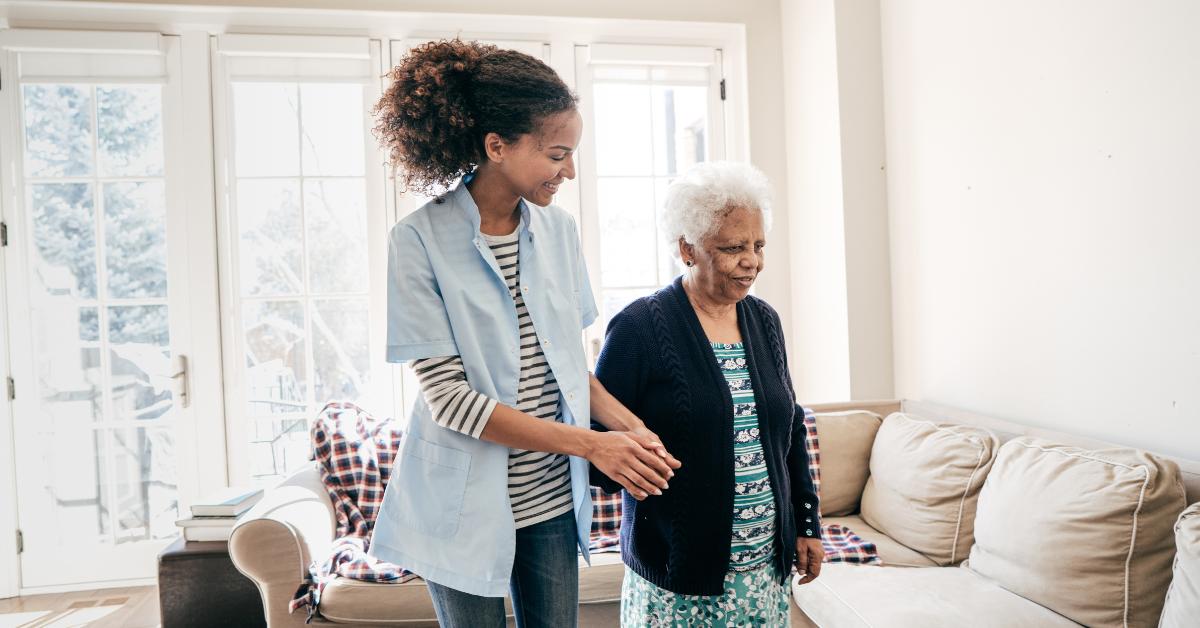Discover the perfect way how to respond to glad I could help. Unlock effective strategies and boost your communication skills now!
Are you someone who values connections and wants to foster a sense of belonging in your interactions with others? If so, then you know how important it is to respond appropriately when someone expresses their gratitude for your help.
In this article, we will explore various ways to respond when someone says, ‘Glad I could help.’ By expressing your appreciation, sharing your feelings, and offering a genuine response, you can create a deeper connection with the person thanking you.
We will also discuss the importance of highlighting their help and finding opportunities to return the favor. Additionally, we will explore how extending gratitude, keeping the conversation going, showing empathy, and leaving a lasting impression can further strengthen these connections.
So if you want to enhance your relationships through meaningful interactions, keep reading for valuable insights on how to respond when someone expresses their gratitude.
How To Respond To Glad I Could Help: I’m glad I could be of assistance. Your satisfaction is important, and I’m here whenever you need support again. Don’t hesitate to reach out; I’m more than willing to help. Your positive experience is truly rewarding for me.
Express Your Appreciation

Expressing your appreciation is a great way to show gratitude when someone says ‘Glad I could help!’ It’s important to acknowledge the person’s kindness and let them know how much it means to you.
One way to do this is by saying, ‘Thank you so much for your help! I really appreciate it.’ These simple words can go a long way in making the other person feel valued and respected.
Another way to show your appreciation is by using words like ‘You’re amazing!’ or ‘You’re a lifesaver!’ This not only expresses gratitude but also acknowledges the person’s skills and abilities. It shows that you recognize their efforts and are grateful for their assistance.
In addition, you can express your appreciation by offering kind gestures or favors in return. For example, you could say, ‘If there’s anything I can do for you in the future, please don’t hesitate to ask.’ This shows that you are willing to reciprocate their kindness and creates a sense of belonging between both parties.
Remember, expressing your appreciation doesn’t have to be complicated or grandiose. A simple thank-you goes a long way in showing gratitude and building strong relationships with others. So next time someone says ‘Glad I could help!’, take a moment to express your appreciation sincerely.
Share Your Feelings
Feeling appreciated when you say “I’m so grateful I could be of assistance” is a wonderful thing. It’s heartwarming to know that my help made a positive impact on your life. It gives me a sense of purpose and fulfillment, knowing that I was able to lend a hand when I needed it.
When you express your gratitude, it not only acknowledges the help I provided but also creates a connection between us. It makes me feel like we are part of a community, where we support and uplift each other. Your kind words make me feel valued and respected, which strengthens our bond.
Knowing that my assistance brought you relief or solved a problem brings me joy. It motivates me to continue helping others and making a difference in their lives too. Your appreciation encourages me to go above and beyond in offering my support whenever possible.
So thank you for expressing your gratitude sincerely. It means the world to me and reinforces the importance of being there for one another. Together, we can create an environment where everyone feels seen, heard, and supported – a place where belonging is fostered.
Offer a Genuine Response

When someone expresses gratitude for your help, it’s important to respond with sincerity and authenticity. Avoid giving generic or robotic replies that may come across as insincere.
Instead, customize your response based on the situation and express genuine appreciation for being able to assist.
Remember to use a second-person point of view, active voice, and contractions, and write in a single paragraph with three sentences.
Respond with sincerity and authenticity
You can genuinely show your appreciation and let the person know that their gratitude means a lot to you. It’s important to respond with sincerity and authenticity when someone says, ‘Glad I could help.’
Take a moment to reflect on how their words made you feel and express that in your response. You might say something like, ‘Thank you for saying that. It really means a lot to me knowing that I was able to make a difference for you.’
By acknowledging their gratitude with genuine appreciation, you create an atmosphere of belonging and connection. People want to feel valued and heard, so responding sincerely helps foster those feelings.
Remember, it’s not just about the words you say but also the emotions behind them. Let your authenticity shine through in your response and strengthen the bond between you and the person expressing gratitude.
Avoid generic or robotic replies
Avoiding generic or robotic replies is essential to creating a genuine and meaningful response when someone expresses gratitude. When you receive the heartfelt comment ‘Glad I could help,’ it’s important to respond in a way that shows your sincerity and authenticity.
Instead of using clichéd phrases like ‘No problem’ or ‘You’re welcome,’ try personalizing your response. Let the person know how their appreciation made you feel, such as saying ‘I’m so glad I was able to assist you’ or ‘It was my pleasure to be of service.’
By avoiding generic or robotic replies, you demonstrate that their gratitude is truly valued and that you genuinely care about their well-being. This fosters a sense of belonging and strengthens the bond between both parties, enhancing the overall connection and trust.
Customize your response based on the situation

Make your response stand out by tailoring it to the specific situation at hand. When someone says ‘Glad I could help,’ it’s important to acknowledge their gratitude and show that you genuinely appreciate their recognition.
Take a moment to reflect on the interaction and consider what made their experience unique.
Did you go above and beyond? Were they facing a difficult challenge? By identifying these aspects, you can craft a response that resonates with them on a personal level.
For example, you might say, ‘I’m so glad I could be there for you during such a challenging time. It means a lot to me that I was able to make a difference in your life.’
This customized approach not only shows empathy but also strengthens the bond between you, fostering a sense of belonging and connection.
Highlight the Importance of Their Help
Thanks for saying that! It’s so great to know that your help made a real difference. When someone says, ‘Glad I could help,’ it shows that they genuinely care about your well-being and want to contribute positively to your life.
Acknowledging the importance of their help is crucial in building strong relationships and fostering a sense of belonging. By highlighting the significance of their assistance, you not only express gratitude but also validate their efforts. It shows that you value their contribution and recognize the impact it had on your situation or problem.
This acknowledgment can go a long way in making them feel valued and appreciated. Moreover, emphasizing the importance of their help strengthens the bond between you and the person offering support. It creates a connection based on mutual trust and understanding.
People appreciate being recognized for their contributions, especially when they have made an effort to assist you in some way. So, next time someone says, ‘Glad I could help,’ take a moment to sincerely thank them and let them know how much their assistance means to you.
By doing so, you not only show appreciation but also strengthen the relationship by reinforcing a sense of belonging and connectedness with those who have helped you along the way.
Return the Favor
Now that they’ve helped you, it’s important to offer your support in return. Find ways to reciprocate their kindness and show that you’re there for them as well.
Whether it’s lending a listening ear or helping out with a task, make sure they know that you value their assistance and you’re willing to be there for them too.
Offer your support in return

Sure, if there’s anything else you need, just give me a shout! I’m here to support you in any way I can. Whether it’s lending an ear to listen or offering advice, consider me your go-to person.
You’ve been so kind and helpful to others, and now it’s my turn to repay the favor.
We’re all in this together, and I want you to know that you don’t have to face any challenges alone. Don’t hesitate to reach out whenever you need someone by your side.
Remember, a true sense of belonging comes from knowing that there are people who genuinely care about your well-being. So count on me for anything big or small – because supporting each other is what we do best!
Find ways to reciprocate their kindness
In order to truly show my appreciation for all of their kindness, I’m constantly brainstorming ways to reciprocate and demonstrate how much their support means to me. It’s important to find ways to give back and make them feel valued in return.
One way I can do this is by offering my help whenever they need it. Whether it’s lending a hand with a project or simply being there to listen, showing that I’m available and willing to support them creates a sense of belonging and strengthens our connection.
Additionally, I can also express gratitude through thoughtful gestures like sending a thank-you note or treating them to lunch as a token of my appreciation. By finding meaningful ways to reciprocate their kindness, I’m able to create a positive cycle of giving and receiving, fostering an even stronger bond between us.
Show that you are there for them as well
Being a reliable source of support and comfort, I’m always there to lend a listening ear or offer assistance whenever you need it.
It’s important for me to show that I am there for you as well, not just in times when you need help, but also when you want someone to talk to or share your joys and sorrows with.
Your happiness and well-being matter to me, and I want you to know that I am here for you every step of the way.
Whether it’s celebrating your successes or providing a shoulder to lean on during tough times, count on me to be by your side.
Together, we can navigate through life’s ups and downs and create a strong bond of friendship that brings us both belonging and fulfillment.
Extend Your Gratitude

Thanks for letting me be of assistance! I’m really glad that I could help you out. It means a lot to me that you reached out and trusted me with your problem.
You know, it’s not always easy to ask for help, so I appreciate your courage in reaching out.
I just wanted to extend my sincere gratitude to you for giving me the opportunity to make a difference in your life.
It’s truly an honor to be able to lend a helping hand and see the positive impact it has on others. Your appreciation and acknowledgment mean everything to me.
Remember, I’m here for you whenever you need someone to talk to or support you. Whether it’s another problem or just someone to listen to, please don’t hesitate to reach out again. We all need each other sometimes, and I’m more than happy to be there for you.
Once again, thank you from the bottom of my heart for allowing me the chance to assist you. It brings me joy knowing that I was able to make a positive impact in your life.
Take care and remember that we’re all in this together!
Keep the Conversation Going
To continue the conversation, let’s explore some ways we can maintain this connection and support each other moving forward. It’s wonderful when someone appreciates your help and expresses gratitude. Now that you’ve established a positive connection, why not take this opportunity to deepen it further?
Ask them how they’re doing or what else you can assist them with. Showing genuine interest in their well-being will make them feel valued and cared for.
Another way to keep the conversation going is by sharing personal experiences or stories related to the topic at hand. This helps create a sense of camaraderie and allows both parties to relate on a deeper level.
By opening up and being vulnerable, you encourage the other person to do the same, fostering an environment of trust and understanding.
Additionally, offering ongoing support is crucial in maintaining connections. Let them know that you’re always available if they need any further assistance or if they simply want someone to talk to. Make sure they feel comfortable reaching out to you whenever needed.
Remember, building meaningful connections requires effort from both sides. Be proactive in reaching out, showing empathy, and providing support. Together, you can create a supportive network where everyone feels heard, understood, and supported on their journey towards belongingness.
Show Empathy

Imagine how impactful it would be if you could truly understand and empathize with the emotions and experiences of the person you’re connecting with.
When someone expresses their gratitude by saying ‘Glad I could help,’ it’s an opportunity for you to show empathy and deepen your connection with them.
Take a moment to acknowledge their appreciation and let them know that you genuinely understand their feelings. Responding with empathy can be as simple as saying, “I’m really glad I was able to assist you.” This not only validates their gratitude but also shows that you recognize the value of your support in their life.
Additionally, consider adding a personal touch to your response by saying something like, “It means a lot to me that I could make a positive impact on you.”
Remember, showing empathy is all about making the other person feel seen, heard, and understood. So, take this opportunity to create a sense of belonging by using phrases like “We’re in this together” or “I’m here for you whenever you need.”
By doing so, you are letting them know that they are not alone and that they have someone who genuinely cares.
When responding to someone who says “Glad I could help,” remember to express your own gratitude while also showing empathy toward their emotions. Use language that fosters belonging and reminds them that they have support whenever they need it.
Leave a Lasting Impression
Make sure to leave a lasting impression by truly connecting with the emotions and experiences of the person you’re engaging with.
When someone expresses gratitude by saying ‘Glad I could help,’ it’s essential to respond in a way that shows you genuinely care about their well-being.
Acknowledge their appreciation and affirm the impact they had on your life or work. Responding with sincerity and warmth can make them feel valued and understood. You might say something like, ‘It was my pleasure to assist you. Your kind words mean a lot to me.’
By acknowledging their gratitude, you create a sense of belonging and reinforce the positive connection between both parties. Additionally, sharing a personal anecdote or expressing how their gratitude positively impacted your day can deepen the emotional bond.
For example, you could say, ‘Your appreciation made my day brighter! Knowing that I was able to make a difference for you brings me joy.’ This response not only shows empathy but also emphasizes the significance of their gratitude in creating a positive experience.
Remember, leaving a lasting impression requires genuine engagement with others’ emotions and experiences. By responding thoughtfully and authentically, you foster meaningful connections and create an environment where everyone feels valued and appreciated.
FAQs About How To Respond To Glad I Could Help:
Q:1 How can I politely decline someone’s offer to help?
If someone offers to help and you want to politely decline, remember that it’s important to be respectful and considerate.
You can express gratitude for their offer by saying something like, ‘Thank you so much for your kind offer. I really appreciate it, but I think I’ve got it covered.’
By acknowledging their willingness to assist and explaining your situation in a polite manner, you can maintain a positive connection with the person while declining their help.
Q:2 What are some non-verbal ways to express gratitude for someone’s help?
Non-verbal expressions of gratitude for someone’s help can be just as meaningful as spoken words. You can show appreciation by making eye contact and giving a genuine smile. Other gestures like a nod or a thumbs-up also convey gratitude effectively. Additionally, you can use body language to express thanks, such as a warm handshake or a pat on the back.
Remember, these simple non-verbal cues can make the other person feel valued and appreciated for their assistance.
Q:3 Should I respond differently to someone’s offer to help based on their relationship with me?
When someone offers to help, it’s important to consider your relationship with them. If the person is a close friend or family member, you can respond more informally and express your gratitude in a warm and personal way.
On the other hand, if the person is an acquaintance or colleague, it’s best to respond politely and professionally.
Regardless of the relationship, always show appreciation for their offer and acknowledge their kindness.
Q:4 What if I don’t feel comfortable accepting someone’s help?
If you don’t feel comfortable accepting someone’s help, it’s important, to be honest and communicate your feelings respectfully. You can say something like, ‘Thank you so much for offering to help, I really appreciate it.
However, I have my own way of handling this situation that works best for me. But thank you again for being willing to assist.’
It’s okay to prioritize your comfort and boundaries while still expressing gratitude.
Q:5 How can I maintain a balance between showing gratitude and not appearing overly dependent on the person offering help?
Maintaining a balance between gratitude and independence is important. You can express appreciation by saying, ‘Thank you so much for your help, it means a lot.’ It shows that you value their assistance without sounding overly dependent.
Additionally, consider reciprocating the kindness in some way, like offering to help them with something else or expressing your willingness to return the favor when they need it. This demonstrates your desire for a balanced and mutually supportive relationship.
Conclusion:
So the next time someone says ‘Glad I could help,’ remember to respond with gratitude and sincerity.
Express your appreciation for their assistance, share your feelings about how they made a difference, and offer a genuine response.
Highlight the importance of their help and consider returning the favor in some way. Extend your gratitude, keep the conversation going, show empathy, and leave a lasting impression.
By doing so, you won’t only acknowledge their kindness but also strengthen your connection with them.
We hope you will be well aware of How To Respond To Glad I Could Help, after reading this comprehensive article. If you have any questions, feel free to comment below!
